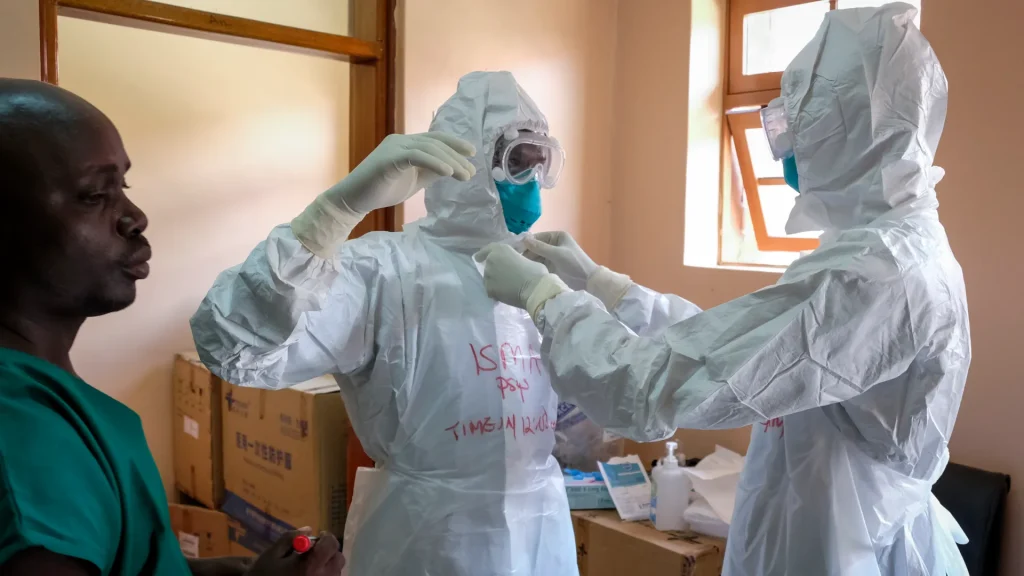Uganda on Saturday announced the end of its latest Ebola outbreak, three months after the deadly virus resurfaced in the capital, Kampala.
The outbreak was first reported on January 30, following the death of a male nurse who had tested positive for the virus. In a statement shared on X, the Ministry of Health confirmed the development, celebrating the milestone with the words, “Good news! The current Ebola Sudan Virus Disease outbreak has officially come to an end.”
Authorities said the declaration came after 42 consecutive days without a new infection, meeting international standards for ending an outbreak. However, the ministry did not release updated figures on the total number of cases. As of early March, at least ten infections and two fatalities had been recorded.
Ebola outbreaks are not uncommon in Uganda, a country where vast tropical forests provide a natural reservoir for the virus. The latest incident was caused by the Sudan strain, for which no licensed vaccine currently exists. It was Uganda’s ninth recorded outbreak since the virus was first detected there in 2000.
The outbreak’s emergence in Kampala — a bustling metropolis of around four million people — raised fears of wider regional spread, given the city’s position as a major transport link to the Democratic Republic of Congo, Kenya, Rwanda, and South Sudan.
Uganda’s vulnerability is compounded by its proximity to the Democratic Republic of Congo, which has endured more than a dozen Ebola outbreaks, including a major epidemic between 2018 and 2020 that claimed nearly 2,300 lives.
Despite the risks, health officials credited the country’s robust epidemic response systems, refined over years of confronting Ebola, for swiftly containing the outbreak. Surveillance networks, prompt testing, and community outreach played critical roles in curbing the virus’s spread.
Ebola is transmitted through contact with the bodily fluids of infected individuals, with symptoms including severe headache, muscle pain, vomiting of blood, and extensive bleeding. The disease remains one of the world’s deadliest viral infections when left untreated.



